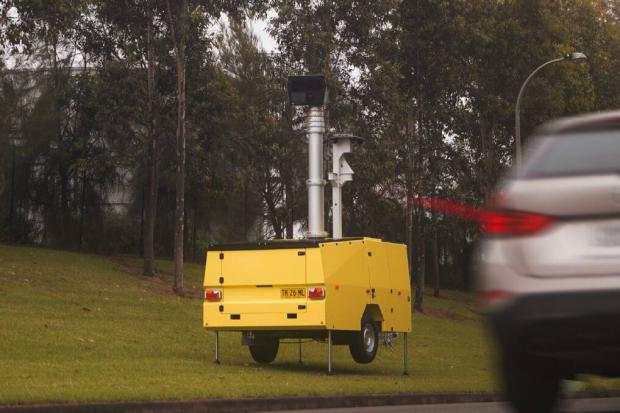
Breaking News
 Avengers: Doomsday | Only in Theaters December 18, 2026
Avengers: Doomsday | Only in Theaters December 18, 2026
 Here Are 5 Wars Trump Started or Expanded in 2025
Here Are 5 Wars Trump Started or Expanded in 2025
 Everyone's a Lender Now: Shadow Banking USA
Everyone's a Lender Now: Shadow Banking USA
 General Flynn Will Issue An Emergency Message To President Trump And The American People...
General Flynn Will Issue An Emergency Message To President Trump And The American People...
Top Tech News
 Laser weapons go mobile on US Army small vehicles
Laser weapons go mobile on US Army small vehicles
 EngineAI T800: Born to Disrupt! #EngineAI #robotics #newtechnology #newproduct
EngineAI T800: Born to Disrupt! #EngineAI #robotics #newtechnology #newproduct
 This Silicon Anode Breakthrough Could Mark A Turning Point For EV Batteries [Update]
This Silicon Anode Breakthrough Could Mark A Turning Point For EV Batteries [Update]
 Travel gadget promises to dry and iron your clothes – totally hands-free
Travel gadget promises to dry and iron your clothes – totally hands-free
 Perfect Aircrete, Kitchen Ingredients.
Perfect Aircrete, Kitchen Ingredients.
 Futuristic pixel-raising display lets you feel what's onscreen
Futuristic pixel-raising display lets you feel what's onscreen
 Cutting-Edge Facility Generates Pure Water and Hydrogen Fuel from Seawater for Mere Pennies
Cutting-Edge Facility Generates Pure Water and Hydrogen Fuel from Seawater for Mere Pennies
 This tiny dev board is packed with features for ambitious makers
This tiny dev board is packed with features for ambitious makers
 Scientists Discover Gel to Regrow Tooth Enamel
Scientists Discover Gel to Regrow Tooth Enamel
 Vitamin C and Dandelion Root Killing Cancer Cells -- as Former CDC Director Calls for COVID-19...
Vitamin C and Dandelion Root Killing Cancer Cells -- as Former CDC Director Calls for COVID-19...
Pay Attention to Any New Surveillance Cameras While Driving – Breakthrough Technology...

Traffic cameras have been the bane of Britons for many a year now — but our neighbors across the pond have recently upped the battle, and the technology is coming over to America, as well.
According to a Dec. 21 report from NBC News, police departments in the United States have become the latest to use an AI-powered traffic camera system made by an Australian company named Acusensus.
The system, called "Heads Up," doesn't just check speed or running traffic lights like in other locales.
Instead, they look for violations, like failure to wear a seat belt or texting while driving.
"The Heads Up cameras take pictures of every vehicle that passes by them, capturing images of their license plates, as well as their front seats. AI analyzes the images and determines how likely it is that a violation occurred, assigning each one a 'confidence level,'" NBC News reported.
"The cameras have been widely tested in the U.K., where nearly half of the country's police forces have tried them, and in Australia, where they've sparked debates about privacy and drawn media attention. "
Those cameras use the AI technology to send tickets once they're reviewed by human sources. In the United States, where Acusensus has cameras in Georgia and North Carolina, the systems work a little different.
"The Heads Up Real Time system in the United States sends images to nearby police officers, allowing them to stop drivers before violations occur," NBC News reported.
"The other Heads Up product used internationally sends the pictures to law enforcement officials as part of an evidence package, and they can mail out tickets to offending drivers. [the company's vice president of government solutions] said an automated ticketing program, such as Heads Up, would require state legislation to authorize its use. "
However, don't think for a second that this hasn't led to more ticketing.



